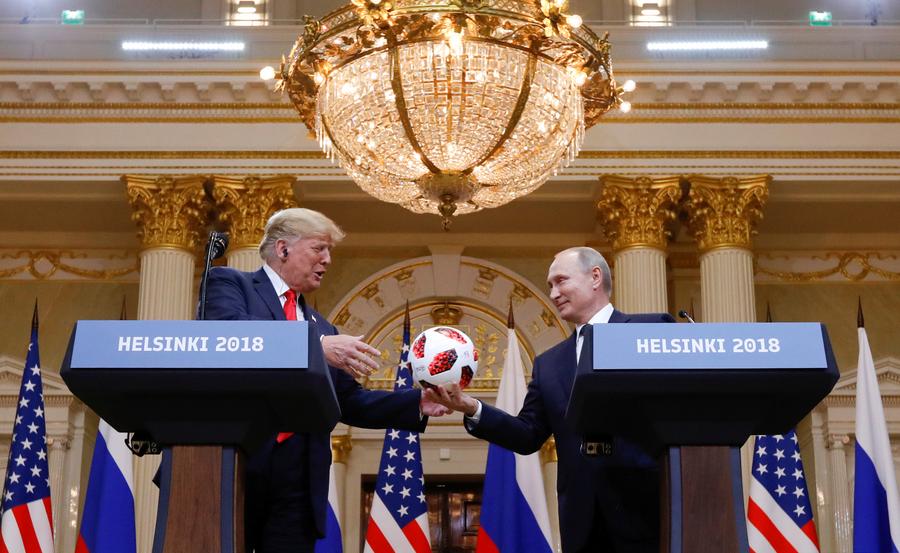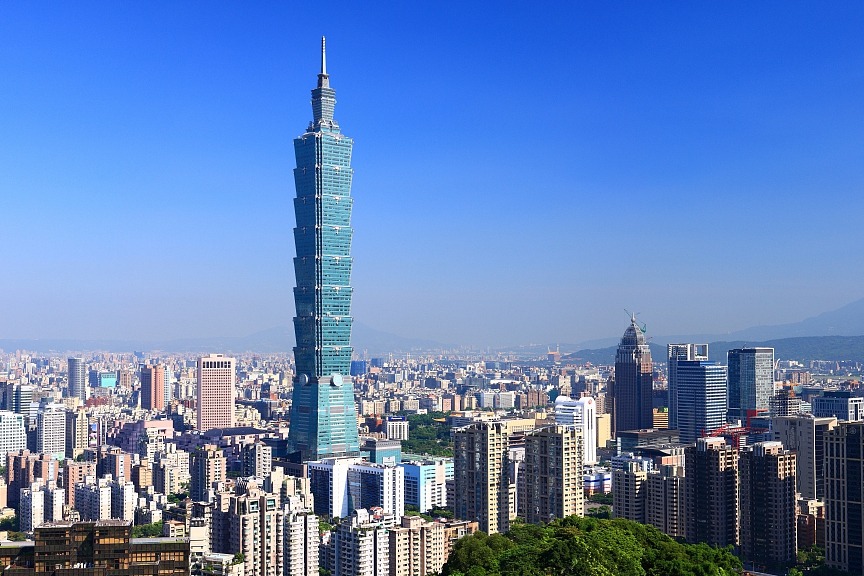Trump-Putin meeting lays bare wild Russophobia in United States


As someone who keeps a close eye on US politics, I have long found the Sinophobia among American politicians "absurd" and "disgusting". US presidential campaigns have often displayed the obsession of politicians to make China their favorite bogeyman.
However, I have to admit that in the past years, the Russophobia exhibited in the US has been even more horrifying. What happened last week reflected such maniac phobia.
US President Donald Trump, elected for his anti-establishment campaign, had to reverse the words he said at Monday's joint conference with Russian President Vladimir Putin in Helsinki due to the excessive backlash at home, especially from his Republican supporters.
When asked on Monday about the alleged Russian meddling in 2016 US presidential election, Trump said, he had asked President Putin, and that "he just said it's not Russia".
"I will say this: I don't see any reason why it would be," Trump continued.
On Tuesday, Trump changed tack and said the sentence should have been: I don't see any reason why it wouldn't be Russia.
For people who have followed Trump, it's hard to believe this correction is his real thinking.
Those critical of the meeting probably expected their president to go to the summit and point his finger directly at Putin at the news conference and accuse him of everything from election meddling to the Ukraine crisis.
They may not realize that Putin can point a finger too. The US has more than once interfered in Russian elections, although US politicians like to call it "democracy promotion".
The US and its NATO allies supported the demonstrators who unseated Ukraine's elected, pro-Russian president Viktor Yanukovych in 2014.
Many scholars believe the increased Russian support for the legitimate Syrian government is a response to the US arming of Syrian rebels to overthrow the Bashar al-Assad Syrian government.
Unfortunately, only a small group of Americans, such as Patrick Buchanan, who served in the Nixon, Ford and Reagan administrations, famed University of Chicago political scientist John Mearsheimer, and Ted Carpenter, a scholar at the Cato Institute, have commented on this.
It would no doubt have pleased the Russophobes if the summit or press conference had turned out to be a finger-pointing contest between the two leaders. But that would have been a waste of such an important opportunity for the two countries to improve their deeply strained relations. And it won't help solve any key bilateral, regional and global issues that require the US and Russia to work together.
Those critical of the meeting clearly have no interest in seeing progress made on any of these issues.
About 90 percent of the world's 15,850 nuclear weapons are in the hands of the US and Russia, according to the Stockholm International Peace Research Institute. These nuclear warheads, which could wipe out human civilization multiple times, are certainly a pressing issue.
That is why I applaud Trump for his courageous summits in rapprochement with the Democratic People's Republic of Korea and Russia, despite my strong opposition to many of his unilateral actions, such as pulling the US out of the Paris climate accord and the Iran nuclear deal and launching a tariff war against the US' major trading partners.
US President Bill Clinton, when mediating peace between Israelis and Palestinians in the 1990s, said making compromise is a sign of strength, not weakness. Multiple US and Soviet leaders have sat down for summits even during the height of the Cold War.
The Russophobia in the US today is so bad that it has made such compromises and rapprochement between the two countries more difficult than ever. This is a threat to Russia, the US and the whole world.
The author is deputy editor of China Daily USA.
chenweihua@chinadailyusa.com


































